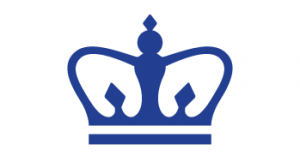Columbia University Presidential Scholars in Society and Neuroscience (PSSN)
Presidential Scholars in Society and Neuroscience (PSSN) is an innovative program pioneering interdisciplinary research between neuroscience and the arts, social sciences, and humanities. Each Scholar in this highly selective program has proposed a novel cross-disciplinary research project at the intersection of neuroscience and at least one other field, which they will conduct over the course of the three-year fellowship. Presidential Scholars join a vibrant community of postdoctoral researchers and faculty mentors and affiliates from across Columbia University.
Columbia University has assembled a distinguished group of neuroscientific researchers in the Zuckerman Mind, Brain, Behavior Institute, one of the most important loci of neuroscience research in the world. The Zuckerman Institute, together with over 100 faculty in neuroscience in basic and clinical departments at the Columbia University Irving Medical Center and the Morningside campuses, are committed to supplementing the groundbreaking experimental inquiry of the neuroscience faculty by systematic investigation into the conceptual underpinnings and the social foundations of such newly obtained knowledge.
To foster true interdisciplinary research, each Presidential Scholar works closely with at least two faculty mentors: at least one drawn from neuroscience or related fields and the other(s) from the arts, humanities, or social science disciplines closest to the work proposed by the Scholar. Mentors are selected in consultation with the Scholar. While Presidential Scholars remain independent, they receive a modest research allowance and tailored support from the program and from their faculty mentors. The PSSN program aims to develop integrative neuroscience research that is leading the way in bringing together disciplines in order to address critical questions about science and society. During every application round, the selection committee comes together to discuss the pressing issues of our time and considers how the next generation of scholars will address these issues as part of their research.
For this application season, PSSN recognizes that there is a growing need for Presidential Scholars who have experience examining questions about diversity, equity, inclusion, anti-racism, and decolonization broadly defined. The future of science depends on scholars who can foster new collaborations among neuroscientists and other discipline experts, practitioners, and policy makers around these compelling and urgent societal issues that connect to mind, brain, behavior, and mental health. It is essential that the scholars tackling these challenges have the confidence and intellectual gravity to dive into complex questions and not shy away from them. We understand this is difficult and complicated work, requiring the support of mentors and leaders across the University, as well as guaranteed research and training support for the individuals endeavoring to do this work.
Some of our Presidential Scholars and PSSN affiliates have already engaged this work including:
- Research on the neuroscience of criminality and punishment by a JD/PhD which produced policy papers to guide appropriate uses of neuroimaging in court proceedings and evidence on the mental health effects of solitary confinement.
- Neuroimaging studies on cognitive changes in new mothers that include populations representative of the neighborhoods surrounding Columbia’s medical campus and also provide trauma-informed follow-up care.
- A recent panel hosted by Columbia’s President on the use of neuroscientific evidence in diversity research for education, and the future studies and funding still needed to build support for Affirmative Action practices at Universities.
- A seed grant project to develop new applications for a non-invasive neurotechnology that would allow people to create and play music with minimal physical movement, with applications for rehabilitation and people with limited physical mobility.
The Program is working to expand its reach in this realm in the 2022 application cycle.
